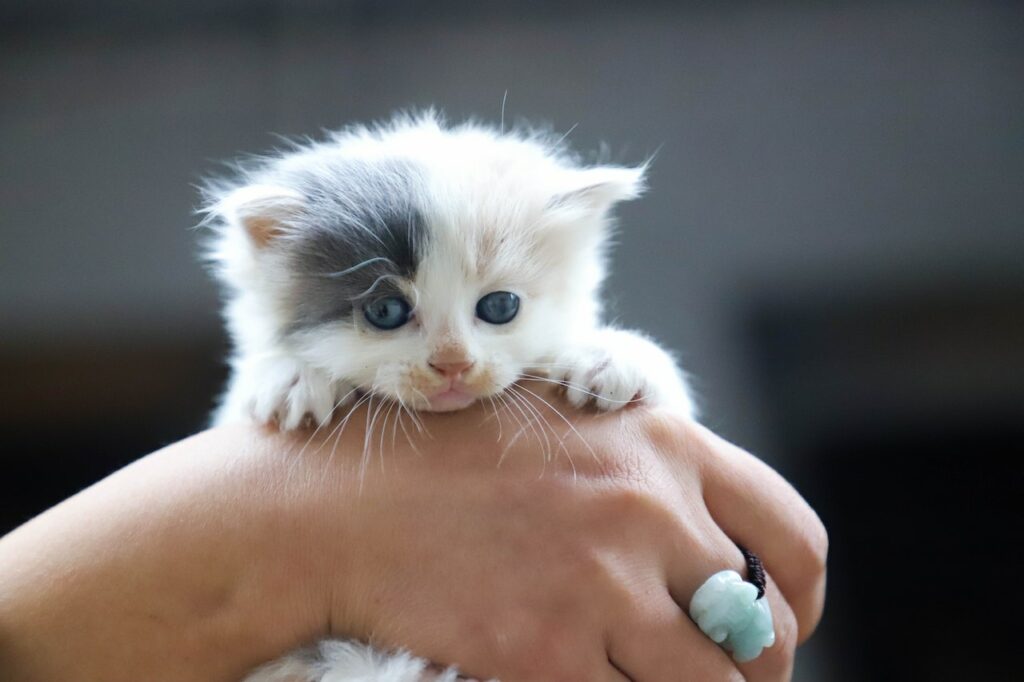Kitten Farts A Lot: All You Need to Know About Feline Flatulence
Are kitten farts a sign of poor health, or just another funny quirk of our furry friends? Does it indicate something serious that needs to be addressed? In this article, we will explore the causes and potential consequences of kitten flatulence. We’ll also discuss ways to minimize kitten farting habits as well as how quickly you should seek medical attention when kitten farts become too frequent or smelly. So if your are curious about why kittens let out so many “silent but deadly” bombs, then read on and find out!
Why Do Kittens Fart So Much – Causes and Health Consequences
The sight of a sweet, snuggly kitten can be enough to brighten anyone’s day. However, there are certain moments when that same sweet little furball may fill the room with a rather unpleasant odour. Kittens can and do fart quite often, but don’t worry – it is a normal part of their digestive process!
What Causes Kitten Farts?
Most of the time, kitten farts are simply caused by the food they eat. As any cat parent knows, cats have sensitive digestive systems that may not always respond well to every type of food. For example, some foods contain high amounts of protein or carbohydrates. Making it difficult for kittens to break down in their stomachs and intestines. This makes them more likely to produce gas as a result.
Farting is also caused by bacteria in their gut that break down undigested food particles. These bacteria create gases like carbon dioxide and methane which are then released as flatulence. The amount of gas produced depends on the type of bacteria present in the gut and how much food is consumed throughout the day.
In some cases, flatulence may be caused by an underlying medical condition such as intestinal parasites or inflammatory bowel disease (IBD). If your kitten is experiencing excessive flatulence or if it comes along with other symptoms like vomiting or diarrhoea. It’s important to seek veterinary care right away so they can diagnose the issue and provide treatment if necessary.
Factors That Increase Farting
There are certain things that make kittens more prone to producing gas than others. Some factors include:
Food allergies and sensitivities:
Suppose your kitten has any dietary sensitivities or allergies. In that case, these could trigger gas production in their gut due to inflammation caused by consuming certain ingredients or proteins that their bodies cannot properly process.
Eating too quickly:
If your kitten eats too quickly without chewing enough. This increases the air intake into their stomach. Leading to more gas production when it needs to be expelled from their body.
Low-quality diets:
Some commercial pet foods contain cheap fillers and artificial ingredients which can lead to increased flatulence due to poor digestion in their stomachs. Feeding your kitten high-quality wet or dry foods will help reduce instances of excess gas production since they will be able to better break down these healthier ingredients into energy and nutrients for their bodies instead of excess waste being expelled as windy emissions!
Things You Can Do To Reduce Farting
Although it’s normal for kittens to produce some gas as part of its digestive process, there are some things you can do at home to help reduce instances where your furry friend releases particularly stinky emissions around the house! Here are some tips for helping reduce homemade air freshener action from your little one:
Feed smaller meals
Feed smaller meals more frequently throughout the day instead of one large meal at once. This helps spread out digestion over time so there isn’t too much work done at once in producing waste gases like methane and carbon dioxide from undigested particles being broken down in his/her stomachs for later expulsion through farting!
Consider feeding probiotics.
These contain beneficial bacteria which help keep gut flora balanced. So less waste will be produced during digestion which translates into fewer smelly episodes!
Try switching up kitty’s diet.
See if switching brands or types (wet vs. dry). It helps reduce how often he/she lets out those audible reminders that they recently ate something before retaking a nap!
Talk with vet about prescription medications.
Some cats have gastrointestinal issues requiring specific medications prescribed by vet professionals to help aid digestion while reducing instances where farts become noticeable around home environment due lack of proper absorption within intestine lining itself (iBS syndrome).
Conclusion
Feline flatulence is a normal part of life but should never go unchecked if it becomes a bothersome or frequent occurrence within the household environment. Contact a vet professional immediately if you suspect underlying health conditions causing an increased frequency rate outside the usual range expected through regular eating habits alone!
While these tips won’t necessarily eliminate all odours produced by kitty’s farting episodes altogether. Hopefully, they will help make living conditions somewhat bearable.
If you’re looking for a way to protect your kitten from medical bills associated with any potential health issues caused by excessive farting, consider getting pet insurance for your furry friend with furrr.co.uk! You can know that any unexpected vet bills related to kitten flatulence will be taken care of.










